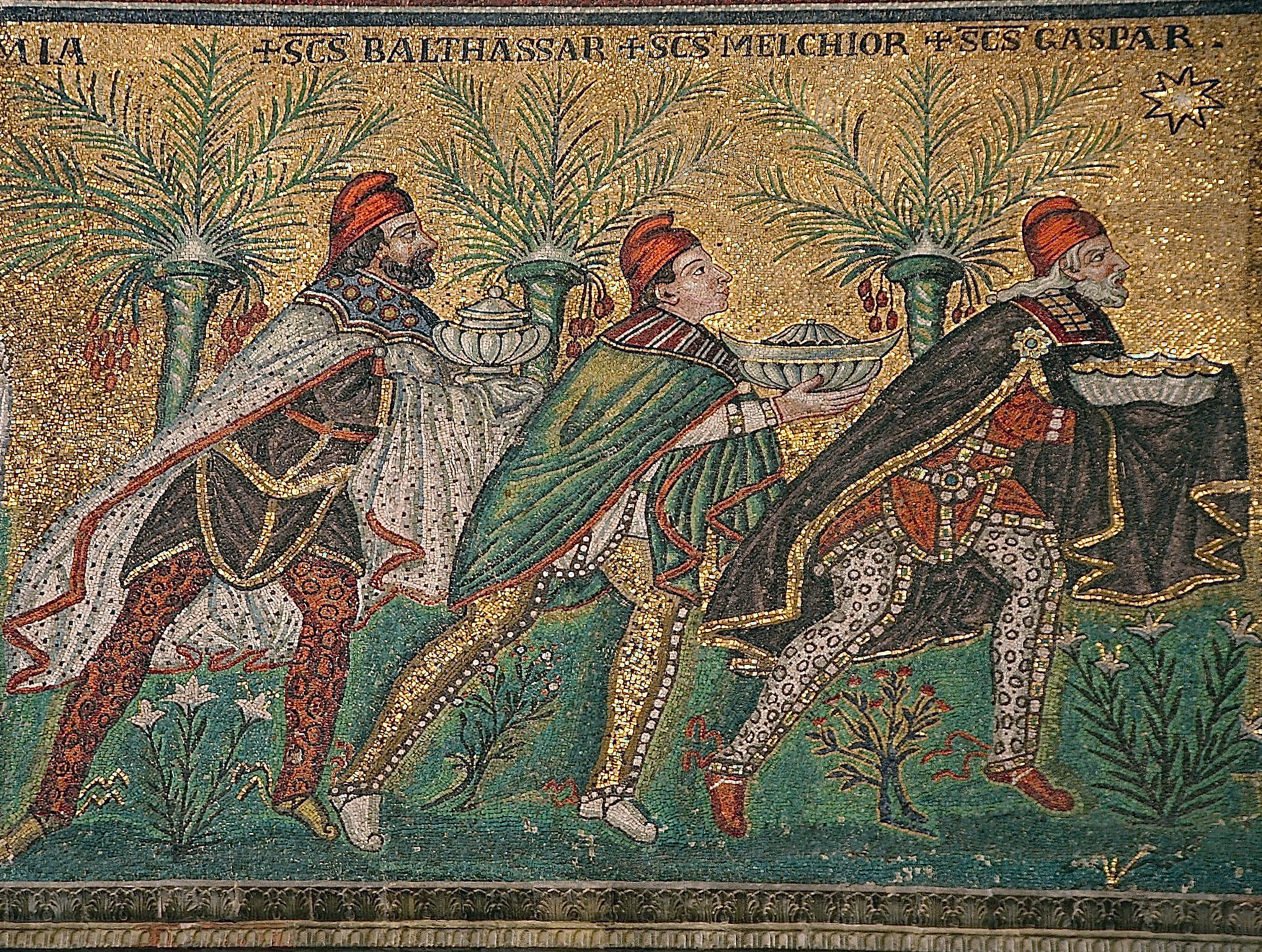Solemnity of Epiphany C (03 Jan 2010)
Is 60. 1-6; Ps 72; Eph 3. 2-3a,5-6; Mt 2. 1-12
Homily of Fr. Paul Panaretos, S.J.
The Other Truth
Celebrating the incarnation of God moves in a variety of directions. On the birthday of our Savior we celebrated God abiding with us in our human nature by being born of Mary. The Solemnity of the Holy Family focused on how we live the mystery of God with us. One direction the Solemnity of the Epiphany offers continues that focus and encourages our deep desires. Our deep desires, those longings for lives of intense meaning and vibrant activity for the sake of others, reveal us to ourselves as the people God created for the world and one another.
 As the shepherds remind us of our poverty, the Magi stand for our splendid human dimensions, particularly our searching spirit, our restless hearts seeking the solace our Creator and Redeemer longs to give us. The Magi, by their words to Herod, their actions described before they arrived in David’s royal city—the logical place to seek a king but the wrong place—suggest being on a quest, which we know as seeking for the true king, the God-man Jesus. Of course, that’s true.
As the shepherds remind us of our poverty, the Magi stand for our splendid human dimensions, particularly our searching spirit, our restless hearts seeking the solace our Creator and Redeemer longs to give us. The Magi, by their words to Herod, their actions described before they arrived in David’s royal city—the logical place to seek a king but the wrong place—suggest being on a quest, which we know as seeking for the true king, the God-man Jesus. Of course, that’s true.
I invite you this year to consider another truth of the Magi: not losing what they found. To put that as a question, we can ask, “What was it like for the wise seekers from the east to return their country after discovering the newborn king of the Jews?” Surely, their exceeding joy at finding the child accompanied them. I think it changed them so that their lives were never the same.
How did they hold on to their transformed selves? They retold the story of their search, first to one another on their return, then to others who awaited them. They also lived what they had discovered. Matthew described what they did when they entered the house and found the child: the Magi prostrated themselves and did him homage. Then they opened their treasures. The treasures of their lives had been opened to them in ways they could not have appreciated before. They had been recreated!
This feast celebrated recreation in the early centuries of the church because it celebrated baptism on this day. People had sought God in Jesus: some heard preachers; others met Jesus in their neighbors or in a helpless child or a widow or an infirm man; still others, like the Magi, may have finally acted on the stirrings in their hearts. However it happened, Jesus transformed them into disciples. Our risen Jesus continues doing that. However it happened, Jesus transformed them into disciples.
Jesus has transformed us into disciples as well. One might say that being a disciple is being found by Jesus. That means every seeker is found by Jesus. Because  Jesus has transformed us, how do we not lose him? Like the Magi returning to their country, we retell the story of our search and being found by Jesus and recreated by him as his disciples. We use scripture to retell our story because scripture is full of stories of search God and being found by God. We retell our story to one another, then to others. We discover or more often appreciate in startling ways the treasures of our lives as never before. We are recreated!
Jesus has transformed us, how do we not lose him? Like the Magi returning to their country, we retell the story of our search and being found by Jesus and recreated by him as his disciples. We use scripture to retell our story because scripture is full of stories of search God and being found by God. We retell our story to one another, then to others. We discover or more often appreciate in startling ways the treasures of our lives as never before. We are recreated!
So that we do not lose our new selves, and so that we grow to be more clearly the people God created each of us, we bring to life our story of being found, being recreated, being transformed as Jesus’ disciples. We bring our stories to life by bringing Jesus to others, especially the least among us. Having an interest in them is the beginning. At Christmas we hear this interest as a ringing bell of the Salvation Army, and its 19th-Century founder put well our mission, too: “The first vital step in saving outcasts consists in making them feel that some decent human being cares enough for them to take an interest in the question of whether they are to rise or sink.”1
In your daily 15 minutes with Jesus this week, pause in the recreating light of our Triune God. Ask the Magi to present you to Jesus. Consider your gifts and thank Jesus for each one. Ask him for a deeper longing to live your baptism not only so you keep discovering Jesus but so you will bring others to him. Close by saying slowly the Lord’s Prayer. To pray thy will be done is to pray to become more aware who God created and to live as that person more honestly and with joy that transforms others.
____________
- William Booth (1829-1912) established the Salvation Army with his wife Catherine in 1865. I recorded the above quotation for my use from a Salvation Army mailing.
Wiki-image by Nina-no of the Magi is used according to the Creative Commons Attribution ShareAlike 2.5 license.
No comments:
Post a Comment